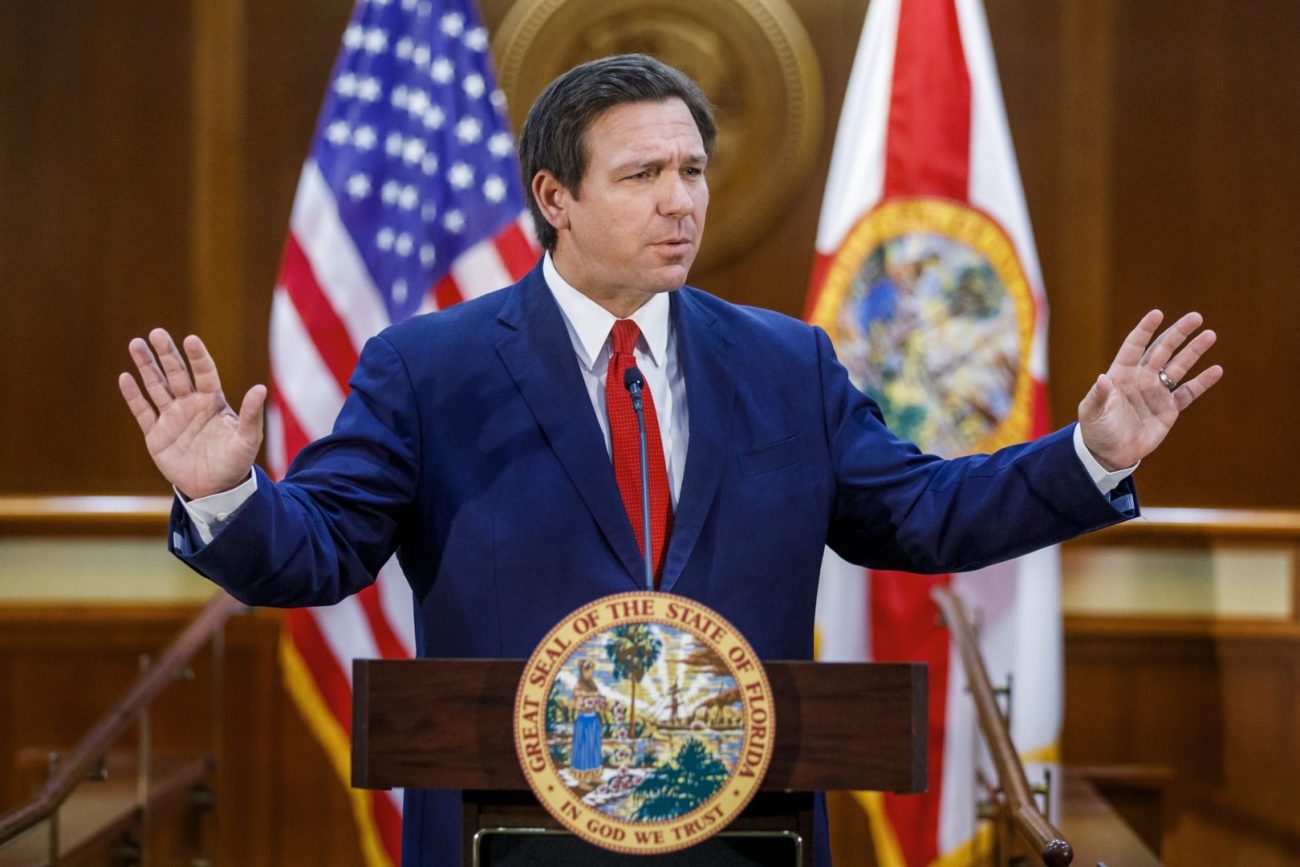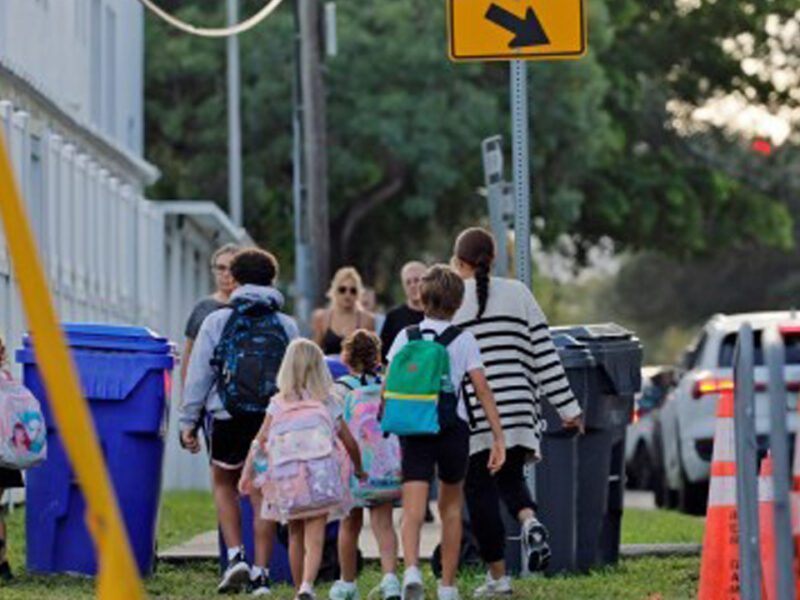
DeSantis calls for $3,000 bonuses for Florida teachers who complete civics education training
Orlando Sentinel | Steven Lemongello & Leslie Postal | March 17, 2021
Gov. Ron DeSantis is proposing a $3,000 bonus for Florida teachers, but only if they complete training and certification for “the Florida civic seal of excellence,” a new civics education program.
DeSantis also wants graduating high schoolers to pass a civics test similar to what aspiring U.S. citizens take, part of a $106 million proposal for this year’s budget.
But he indicated his version of civics education would be what he described as “foundational concepts,” and he slammed critical race theory as “teaching kids to hate their country and hate each other.”
The proposal is the latest DeSantis initiative that appears aimed squarely at pleasing conservatives in advance of not only his 2022 reelection campaign but also a potential 2024 Republican bid for president.
DeSantis’ priorities this year include his controversial anti-protest bill aimed at Black Lives Matter protesters and cracking down on the People’s Republic of China’s stealing of intellectual property, as well as cementing his reputation nationally as the biggest Republican opponent of anti-COVID-restrictions.
Critical race theory, which by one definition declares that the law and legal institutions are inherently racist, is a major issue in conservative media and the subject of restrictions by Republican legislatures nationwide.
“Florida’s civics curriculum will incorporate foundational concepts with the best materials, and it will expressly exclude unsanctioned narratives like critical race theory and other unsubstantiated theories,” DeSantis said at a press conference Wednesday in Naples, calling that and other theories “politicized academic fads.”
“Let me be clear, there’s no room in our classrooms for things like critical race theory,” he said. “Teaching kids to hate their country and to hate each other is not worth one red cent of taxpayer money.”
But critical race theory is not part of Florida’s social studies standards for public schools nor a course taught by its teachers, according to the Florida Department of Education’s website listing classes and the benchmarks that must be covered in each grade and subject.
The topic is offered at universities, in courses at law schools or taught by education, psychology or sociology professors, among others.
Critical race theory also was targeted by former President Trump, who called it “racist” and used it as his explanation for directing all federal agencies to stop anti-bias training last year.
The theory was defended in Time magazine last year by Priscilla Ocen, professor at the Loyola Law School, who said it was “calling for a society that is egalitarian, a society that is just, and a society that is inclusive, and in order to get there, we have to name the barriers to achieving a society that is inclusive.”
Within the next two years, DeSantis said, all graduating high school seniors would have to pass “effectively a citizenship test [that] legal immigrants have to pass to become citizens of our country.”
He said students not having knowledge of “what makes America unique” has led to “so much political bitterness.”
The governor proposed the 12th-grade civics test in 2019 but said Wednesday its start was delayed by the COVID-19 pandemic.
Some previously questioned why another exam was needed. Florida law already requires middle-school students to take a civics course and a standardized civics exam. Most take it as seventh graders, and 71% statewide passed that test in 2019. That exam is tougher than the citizenship test, experts said.
The state also requires high school students to take American history and U.S. government classes and gives a standardized exam to those in the history class, which 69% passed in 2019. The exams were not administered in 2020 because of the pandemic.
DeSantis also criticized universities, saying it was hard for college students to study “some of the foundational principles of our country” because it is hard to find those classes. “Instead, they engage in these politicized academic fads and offer courses that reflect which is really ideology, not actual facts.”
But traditional American history classes are offered and taken regularly at the University of Central Florida.





